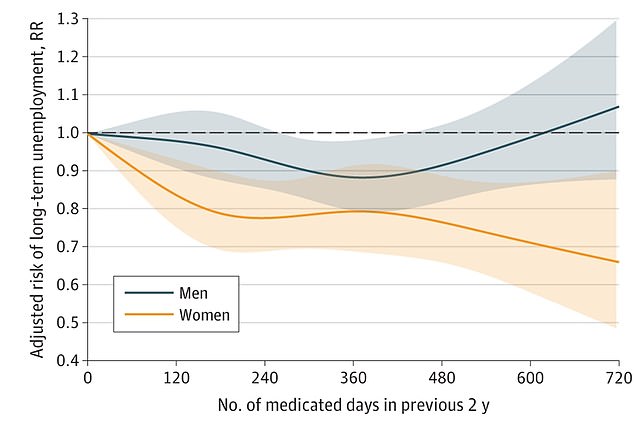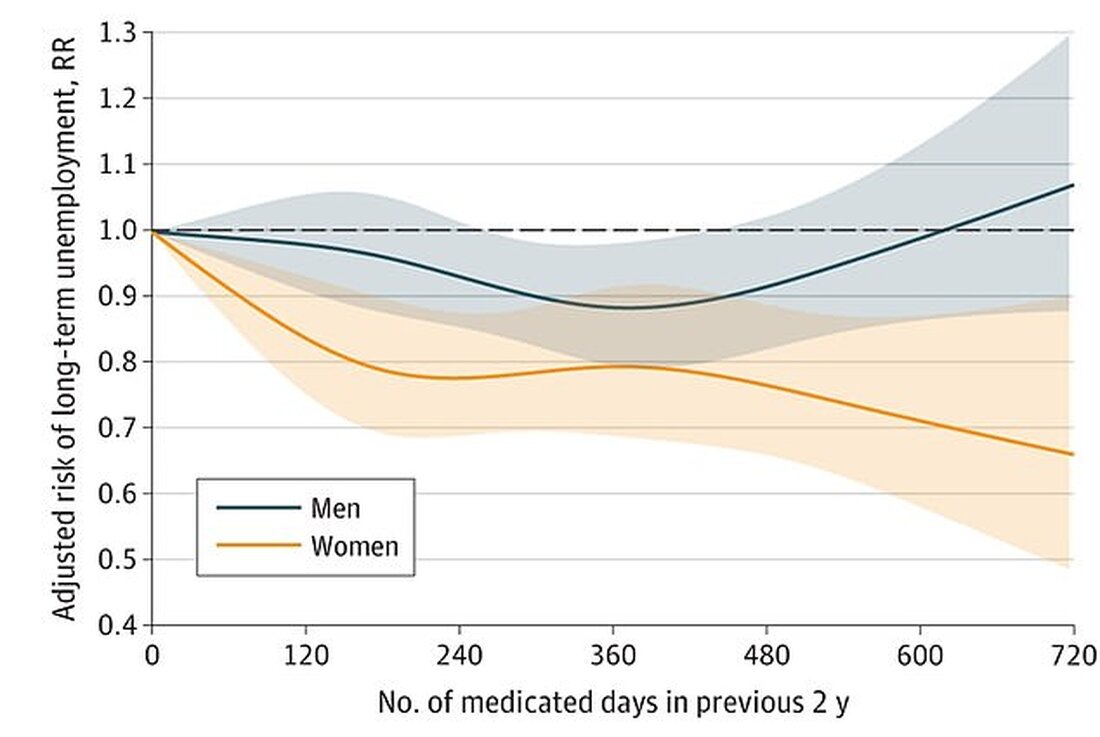Taking medication may help a person diagnosed with attention-deficit/hyperactivity disorder (ADHD) maintain employment over a long period of time, a new study finds.
A Swedish research team from Örebro University and the Karolinska Institute found that a person diagnosed with the disease and taking daily medication was 10 percent less likely to suffer from long-term unemployment.
The effect was even greater for women, as those taking medication were more than 30 percent less likely to become unemployed after two years of consistent drug use.
Researchers highlight the help the drug can provide to a person suffering from this type of behavioral or attention disorder.

The Swedish research team found that ADHD patients who took medication were 10% less likely to have a spell of unemployment lasting longer than 90 days, with women particularly benefiting
"ADHD is one of the most common psychiatric disorders characterized by inattention and hyperactivity with or without impulsivity," the researchers wrote, noting that the condition affects about five percent of children and 2.5 percent of adults.
“Adults with ADHD experience occupational impairments such as poor job performance, less job stability, financial problems, and an increased risk of unemployment,” they continued.
Accordingly Data Around 6.1 million children - half of whom are between the ages of 12 and 17 - are believed to have the disease by the Centers for Disease Control and Prevention (CDC), although rates declined from 2011 to 2016.
The research team published their findings on Wednesday in JAMA network opened collected data from nearly 13,000 middle-aged adults between 44 and 64 years old.
The adults, all of whom had an ADHD diagnosis, were followed for five years from 2008 to 2013.
The data was divided into two groups, half of which were people who took daily medication to manage their condition and others who did not.
Participants were asked about medication use and whether or not they were working.
“Randomized clinical trials have shown that pharmacological treatments for ADHD are effective in reducing core features of ADHD in adults, including difficulty concentrating, poor planning, lack of organization, self-regulation deficits, forgetfulness and impulsivity,” researchers said of the drug, in concluding why it would help a person keep their job.

Researchers said adults with ADHD suffer from "poor job performance, lower job stability, financial problems and an increased risk of unemployment."
Anyone who was out of work for 90 or more days was considered long-term unemployed.
The researchers found that the longer women took the drug, the more their long-term unemployment fell.
After around five months, their risk of long-term unemployment had fallen by over 20 percent. After two years over 30 percent.
Men also experienced benefits from using the drugs, although not as pronounced as women.
After almost a year of use, the risk of long-term unemployment among men had finally fallen to just under 10 percent.
Across both genders, the decline in long-term unemployment was around ten percent.
“To our knowledge, this is the largest population-based longitudinal study evaluating the association of pharmacological treatment for ADHD with subsequent long-term unemployment in middle-aged adults,” the researchers wrote.
“We found that among people with ADHD, taking ADHD medications in the previous two years was associated with a reduced risk of later long-term unemployment, particularly among women.”

 Suche
Suche
 Mein Konto
Mein Konto

